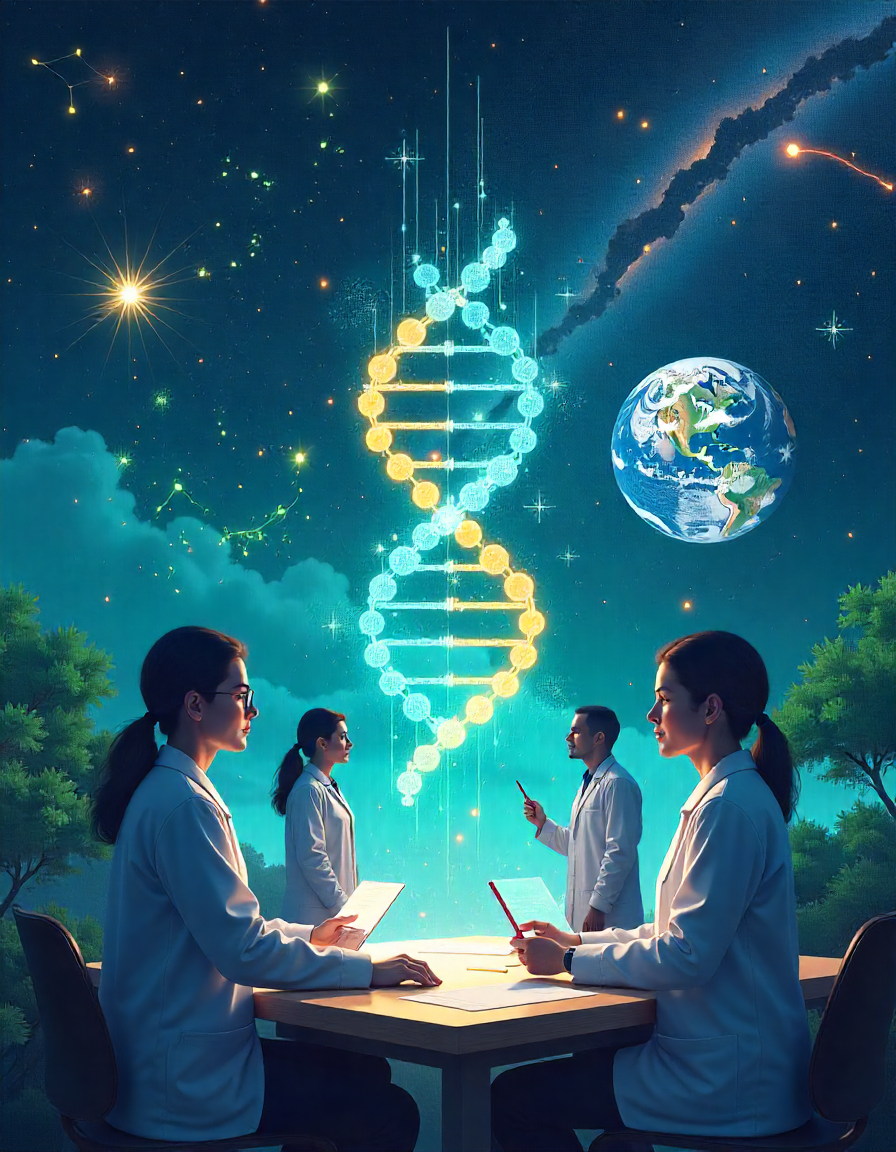In 2025, science continues to evolve at an unprecedented rate, unlocking new knowledge and technologies that promise to shape the future. From breakthroughs in medical treatments to innovative environmental solutions, scientific discoveries are pushing the boundaries of what we know and can achieve. Here’s a roundup of some of the most groundbreaking scientific discoveries you should know about right now.
1. CRISPR-Cas9 Gene Editing Advancements
CRISPR-Cas9 gene editing technology has already revolutionized genetics by allowing scientists to make precise changes to DNA. In 2025, new advancements have significantly improved the accuracy and efficiency of gene editing, paving the way for treating genetic disorders. These developments have brought us closer to potential cures for diseases such as sickle cell anemia, cystic fibrosis, and even certain types of cancer.
Why It’s Important:
-
Enables precise genetic modifications with minimal errors
-
Potential to cure inherited diseases and genetic disorders
-
Opens doors for personalized medicine based on genetic makeup
2. Artificial Intelligence in Drug Discovery
Artificial Intelligence (AI) has made huge strides in healthcare, particularly in drug discovery. By analyzing vast datasets and predicting molecular interactions, AI systems can now accelerate the identification of potential drug candidates. In 2025, AI-driven platforms are expected to streamline the process of developing new drugs, reducing the time and cost of bringing life-saving medications to market.
Key Benefits:
-
Speeds up the drug discovery process
-
Increases precision in identifying effective treatments
-
Reduces the cost and risks associated with traditional drug development
3. Fusion Energy Breakthroughs
For decades, fusion energy has been the “holy grail” of clean energy. In 2025, we are seeing major breakthroughs with fusion reactors, bringing us closer to achieving sustainable, zero-emissions energy. Projects like the ITER in France and advancements in private sector fusion initiatives are demonstrating that nuclear fusion may soon become a viable energy source, potentially revolutionizing how we produce power.
Why It’s Groundbreaking:
-
Produces clean energy without harmful waste or emissions
-
Holds the potential to replace fossil fuels for large-scale energy generation
-
Can address global energy demands while combating climate change
4. Quantum Computing and Quantum Supremacy
Quantum computing has progressed significantly, with companies like Google and IBM claiming to achieve quantum supremacy. In 2025, quantum computers are becoming more powerful, capable of solving complex problems that traditional computers could never manage. From simulating molecules for drug design to optimizing supply chains, quantum computing holds immense promise for solving global challenges in real time.
Why It’s a Game-Changer:
-
Solves complex problems exponentially faster than classical computers
-
Unlocks new frontiers in cryptography, AI, and material science
-
Potential to revolutionize industries like pharmaceuticals, finance, and logistics
5. Artificial Photosynthesis
Artificial photosynthesis, which mimics the natural process of photosynthesis, is one of the most promising advancements in renewable energy. In 2025, scientists have made significant progress in creating devices that can convert sunlight, carbon dioxide, and water into useful energy or chemical compounds. This breakthrough could provide a sustainable solution for reducing greenhouse gases and generating clean energy.
Why It’s Revolutionary:
-
Provides a sustainable way to produce energy and reduce carbon emissions
-
Uses abundant natural resources: sunlight, water, and CO2
-
Could replace fossil fuel-based energy production and chemical synthesis
6. Neuralink and Brain-Machine Interfaces
Elon Musk’s company Neuralink is advancing the field of brain-machine interfaces, with groundbreaking work on implanting devices that allow the brain to directly communicate with computers. In 2025, neural interfaces are showing potential not only for treating neurological conditions but also for enhancing cognitive function. These advancements could lead to new treatments for conditions like paralysis, Alzheimer’s, and even depression.
Why It’s Transformative:
-
Directly links the brain to machines for medical and cognitive enhancements
-
Can provide solutions for individuals with severe disabilities or neurological diseases
-
Opens up possibilities for mind-controlled devices and enhanced brain functions
7. Exoplanet Discoveries and the Search for Life
The discovery of exoplanets, planets outside our solar system, has taken a giant leap forward. In 2025, astronomers have identified thousands of potentially habitable exoplanets, some of which may contain the necessary conditions to support life. Advancements in telescope technology and space missions are bringing us closer to understanding whether life exists beyond Earth.
Why It Matters:
-
Expands our understanding of the universe and potential for life beyond Earth
-
Helps determine the habitability of distant worlds
-
Could answer one of humanity’s oldest questions: Are we alone in the universe?
8. 3D-Printed Organs and Bioprinting
Bioprinting, the process of 3D printing tissues and organs, has reached an exciting phase in 2025. Scientists have successfully printed functional tissues, and researchers are making strides toward printing entire organs, such as kidneys and livers. This breakthrough holds the potential to solve the global organ transplant crisis by providing lab-grown, personalized organs for patients in need.
Key Advantages:
-
Could eliminate organ transplant shortages
-
Allows for the creation of patient-specific tissues or organs
-
Advances personalized medicine and regenerative health treatments
9. Lab-Grown Meat and Cellular Agriculture
Lab-grown meat, created through cellular agriculture, is making waves in food science. In 2025, advancements in cultured meat technology have brought us closer to producing sustainable, cruelty-free meat on a commercial scale. These innovations could reduce the environmental impact of livestock farming, decrease greenhouse gas emissions, and provide an ethical alternative to traditional meat production.
Why It’s Important:
-
Offers a sustainable alternative to traditional livestock farming
-
Reduces carbon footprint and water usage in food production
-
Addresses ethical concerns about animal welfare
10. Telescope Technology and the James Webb Space Telescope
The launch of the James Webb Space Telescope (JWST) has opened up unprecedented possibilities for exploring the universe. In 2025, the JWST continues to send back groundbreaking images and data, providing deeper insights into the origins of the universe, the formation of stars and galaxies, and the potential for life on exoplanets. These discoveries are reshaping our understanding of space.
Why It’s Groundbreaking:
-
Provides unparalleled detail of distant galaxies and cosmic phenomena
-
Advances our knowledge of the universe’s origins and potential for life elsewhere
-
Revolutionizes astrophysics and space exploration
Conclusion
The latest scientific discoveries in 2025 showcase the incredible potential of human ingenuity and technological progress. From gene editing and artificial intelligence to space exploration and sustainable energy, these breakthroughs are not just changing industries but also shaping the future of humanity. As these discoveries continue to evolve, they will likely lead to even more transformative changes, offering solutions to some of the world’s most pressing challenges.






